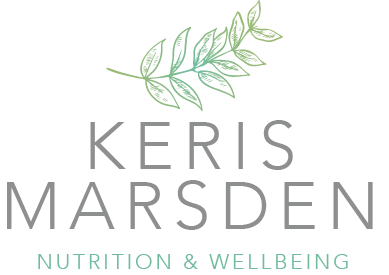What to eat for a better libido
You may have read various claims about specific foods having the ability to enhance your libido, apparently watermelon can increase your sex drive and oysters boost testosterone levels.
Whilst they contain certain nutrients that may support reproductive function it’s much more beneficial to consider your entire diet and lifestyle when it comes to optimising your libido.
Hoping to get turned on by a slice of watermelon is like attempting to get fit by sitting on the sofa and having a sports drink.
Ditch the white stuff
It’s vital your nutrition supports healthy blood sugar regulation.
Studies have shown an association between poorly managed blood sugars and sexual dysfunction in both men and women.
Research has shown that following a Mediterranean diet or simply a healthy diet rich in unprocessed, nutrient dense, wholefoods can lower your risk of sexual dysfunction. This includes meat, fish, poultry, eggs, wholegrains, healthy fats and plenty of fruits and vegetables. Research has also shown longer do you do this, the lower the risk of sexual complications with age.
Studies have shown an association between type 2 diabetes and ED in men.
It impacts both men and women as it can damage the blood vessels and nerves that supply the sexual organs, creating difficulty getting aroused and how you feel emotionally.
In women it can also exacerbate thrush and vaginal dryness.
It’s vital your nutrition supports healthy blood sugar regulation.
This is achieved by limiting highly processed foods like white carbs, sugary drinks, crisps, cakes and avoiding binge drinking (defined as consuming >5 alcoholic drinks on one occasion).
Getting regular exercise and sufficient sleep also positively impacts blood sugar management.
Eating a healthy diet rich in unprocessed, nutrient dense, wholefoods can lower your risk of sexual dysfunction. This includes meat, fish, poultry, eggs, wholegrains, healthy fats and plenty of fruits and vegetables.
The longer do you do this, the lower the risk of sexual complications with age. Men under the age of 60 stand to benefit the most from following a healthy dietary pattern.
Lose weight if needed
If you’re overweight and sedentary this has negative effect on all reproductive hormones.
Studies have observed exercise and sensible caloric restriction (to achieve a healthy weight) are effective at improving sexual function among men with erectile dysfunction who have a high risk of cardiovascular risk factors or diabetes.
Similarly, weight loss has been noted to improve sexual function in females.
Support hormones with healthy fats
Dietary fats are needed for healthy hormones levels.
Olive oil, avocados and oily fatty fish are especially beneficial for heart health.
These provides a balance of monounsaturated fats, omega 3’s and vitamin E which help lower inflammation and offer antioxidant protection against the progression of heart disease (a factor in reduce libido).
This is helpful support blood low to your intimate parts.
Vitamin K2 found in aged cheeses (camembert, gouda, Emmental), liver and natto is also beneficial.
Vitamin K2 helps to protect the arteries from calcification processes (sometimes referred to as arterial hardening) which can restrict blood flow.
Eat steak and seafood
Zinc is needed for hormone production. It’s also integral for sense and smell, losing these is also associated with a decline in sex drive.
Zinc is found in protein rich foods; oysters top the chart by providing 74mg per serving. Beef, crab, lobster, pork and dark meat poultry also provide a high amount of zinc per serving.
Zinc is present in plant-based foods like pumpkin seeds, chickpeas and cashews. However, the amount is much smaller so supplementation with zinc citrate (around 15-25mg) may be beneficial.
Dig into some dark chocolate
Nitric oxide is a molecule produced by your body that helps blood vessels to vasodilate (relax).
This increases blood flow and in doing so it improves erectile function, ejaculatory function, libido, vaginal lubrication and testosterone levels.
Dark chocolate, cocoa powder, cacao nibs, leafy green vegetables (kale, rocket, watercress, spinach) celery, beetroot, citrus fruits, watermelon and pomegranates can help increase nitric oxide.
Go nuts for nuts
Another way to increase nitric oxide levels is to eat foods rich in arginine.
These include nuts and seeds, especially pumpkin seeds, sesame seeds, walnuts, pine nuts and almonds contain high amounts of arginine.
Other sources include chicken, turkey, beef, oats, buckwheat and brown rice.
A case for coffee and red wine
Increasing your intake of dietary antioxidants, known as flavonoids, has been shown to supports healthy hormone levels and protect vascular function.
The good news is that coffee, red wine (in moderation), tea and cocoa all provide a decent dose of flavonoids.
Eating a variety of fruits and vegetables with multiple colours is also important.
Different colours provide different benefits, red, purple and blue are particularly good for circulation so stock up on tomatoes, red peppers, blueberries, radishes and purple cabbage.

